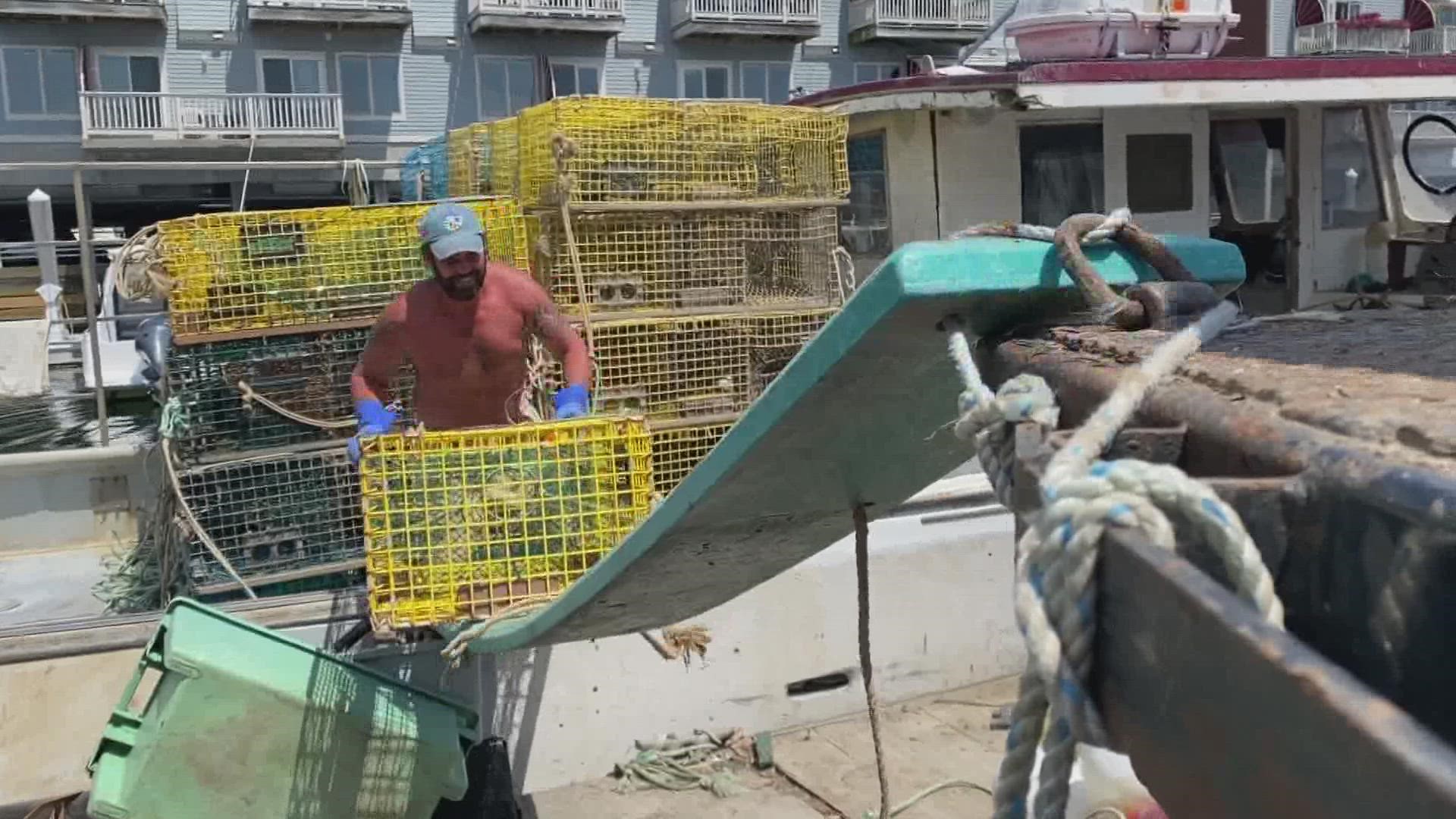MAINE, USA — Jillian Robillard normally spends her days traveling as far south as Massachusetts and as far north as downeast Maine, buying lobsters from fishermen as a broker.
Her business, Southern Maine Crabs in Kittery, primarily deals with lobster and Jonah crab. But for today, she and a coworker are cracking cooked lobsters, a task normally left for a processor.
“We recently got our license to be able to start processing small amounts on site, so that is cooking the lobster and picking out the meat … in hopes of taking out one step,” Robillard said.
A step that she said could give lobstermen another 25 to 50 cents per animal.
“That would really be a gamechanger for some of these guys,” Robillard said. “This year has been really tough so far … we’re banking on the fall season to give these guys two-thirds of their income … but with the closures and stuff we’re just not going to see that happen.”
The closure she is talking about is the latest development in three lawsuits involving Maine lobstermen. Two of which that have recent rulings within the last week overturned in favor of environmental groups.
Tuesday, a federal judge in Boston ruled to reinstate a seasonal closure for nearly 1,000 square miles of offshore fishing grounds.
The seasonal ban was introduced in fall 2020 but was repealed in December by a Bangor judge, allowing offshore fishermen to access that area. But now, the ban will most likely be back in place this upcoming fall.
The area, known as LMA 1, is home to hundreds of fishermen like Tyler Turner of Portland.
If the closure stands without a state-level court injunction, then Turner said he would lose out on at least half his income as the ban lasts from October 18 to January 31.
“It’s going to be catastrophic, it’s going to be crippling … I just want to be able to work, I can relieve myself, I don’t need someone telling me where I can’t go,” Turner said.
Turner is 36 and said he’s fished since he was 10 years old without seeing a single North Atlantic right whale, which is at the center of debate between lobstermen and environmental groups.
NOAA officials maintain that while no right whale deaths have been linked to Maine lobster gear, it’s possible it could have contributed to injury and death, as Maine didn’t require its lobstermen to mark their gear until 2020.
Maine Representative Jared Golden, D-ME 2nd District, said that isn’t enough evidence to restrict lobstermen from fishing during their peak season, which goes until December.
“How do you talk to them about a government that will regulate them … put them out of business … when there is no data to attribute the deaths back to,” Rep. Golden said. “Absolutely devastating, I think this one needs to be looked at.”
Back at Southern Maine Crab, Robillard said that while lobster fishers deal with the stress of high costs and low returns, government aid needs to allow for more processors in the United States, and that most of the processors are in Canada, raising costs even more.
“There’s been a few people that have said this could be the end all for the industry,” Robillard said. “We’re just going to see a lot of these guys just not go fishing this year.”
The closure, again, is one of three lawsuits involving Maine lobstermen. The seasonal closure is part of the Maine Lobstering Union v. National Marine Fisheries. The Maine Lobster Union claims the closure is not legal, and is awaiting a full review by the District Court in Maine.

